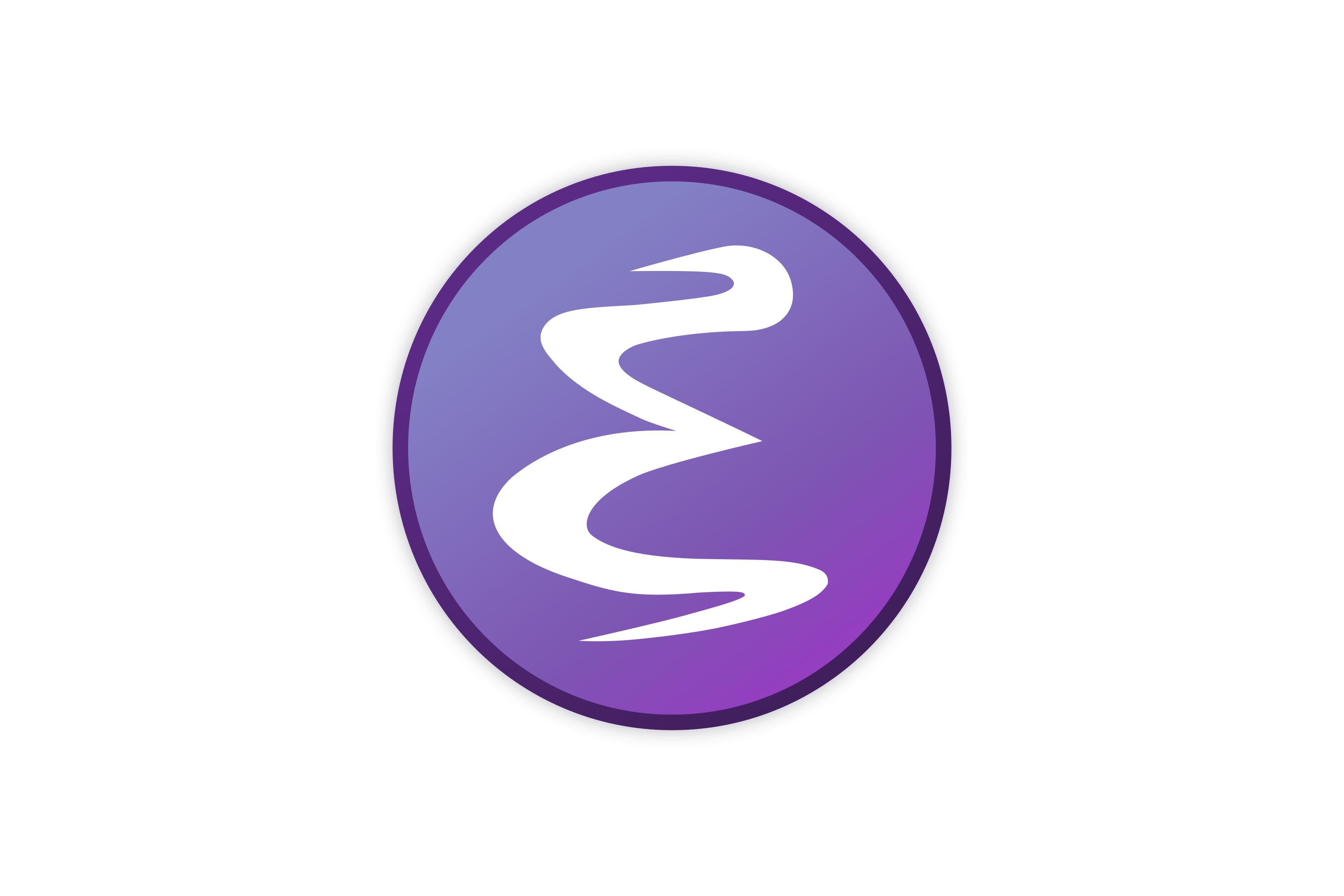Ever had a question about Linux but felt too afraid to ask? Well now’s your chance, ask any question about Linux, no matter how noob or repeated it is, and I and others will help answer them.
Previous noob question thread: https://lemmy.ml/post/14261893

No question here, just wanted to highlight that I use arch btw
I use gentoo btw

I use Slackware btw
* spontaneously combusting * NOOOO

You should try NixOS, it’s pretty cool.

Don’t listen to this guy, use GNU Guix.

Real Linux users only use Hannah Montana linux. 😎

That’s old and unmaintained.
You should switch to RebeccaBlackOS
Maybe. I’m busy right now.
I might do it later. Maybe I’ll do it on
🎵 FRIDAY FRIDAY GOTTA GET DOWN ON FRIDAY 🎵

If you’re not using GNU/Hurd are you even trying?

Redox will be finished before Hurd becomes a thing.

What is something Linux related that you’ve learned recently?
As a meta question, could this work as an additional (or alternate) recurring discussion question? It felt similar in intent, to encourage people to keep learning / asking questions and chances are that if someone learned something then others will benefit from the information (or correct them)

After 26 years of using Linux, I did my first baremetal “immutable” distro install last week.
My youngest son is starting school and instead of the Chromebooks that they recommend, I took a chance and installed Fedora Silverblue on a $200 Lenovo “student-rugged” class laptop. Everything works and he hasn’t had any issues so far. He gets access to the same student platform as the other students through Chrome, but then I can install Minetest and Tux Paint and GCompris as well.
The older kids run Debian stable for years now, but if this works out, I might transition them over next semester.

I learned how a kernel actually loads a program and switches between them by using timer interrupts and interrupt vectors that point to specific locations in memory to resume execution from. Not specifically Linux related, but I’m trying to learn more computer science, and it just clicked for me two weeks ago. I’ve been programming microcontrollers for ten years, but those are monolithic programs, and while I knew what interrupts were and have used them, I never understood how an OS actually runs multiple things while staying in control. Now I do. About time I understood a core concept of these machines that have been here all 42 years of my life.
It’s one of those “aha!” moments like when I realized classes and structs are just data types like any other in C++ when I was starting off programming and can be used like them. OOP became fun after that.

I remember when the mapping of virtual memory segments clicked for me. I think i said out loud, “that’s so clever!”. Now it just seems so fundamental to managing memory for user space applications, but I hadn’t thought about how it was done before.

The other day I learned that you can just grep an unmounted filesystem device. It will read the entire disk sequentially like it’s one huuuuge file. And it will reveal everything on that disk… whether a file inode points to it or not.
Used it to recover data from a file I accidentally clobbered with an errant mv command. It’s not reliable, but when you delete a file, it’s usually not truly gone yet… With a little luck, as long as you know a unique snippet that was in it, you can find it again before the space gets something else written there. Don’t even need special recovery tools to do it, just use dd in a for loop to read the disc in chunks that fit in RAM, and grep -a for your data.

Alright, absolute noob here, I’m not particularly interested in computer science or an OS I have to obsessively research. First, how is gaming on Linux nowadays? I play a lot of games, most of which are not triple-A, so I wonder how accessible this is. Second, what distributions are accessible and still customizable? I have all kinds of peripherals I’d like to be able to use, speaker systems, midi controllers, etc.

Fellow Linux noob, just started using it earlier this year so if someone with more experience wants to weigh in, please do.
That said, gaming on Linux is pretty good. Steam’s proton makes most games playable out of the box, although it’s still a good idea to check Proton DB to see if any particular game you want to play is playable.
As for your other question, I’m not totally sure what you mean by accessible and customizable, but I don’t think any of your peripherals are going to be distro locked. The Arch Wiki is a pretty good resource for, well, everything, but most relevant to you for your peripherals (it also usually gives good information for any distro, not just arch)

About gaming, from my personal experience, it’s overall pretty straight forward. When issues happen, you just got to have patience to read through logs and search up on Google or similar any suspicious parts of the log. Worst part is usually DRM/anticheat, but from what I can gather, usually pretty isolated cases are problematic due to compatibility, usually requiring the devs to go out of their ways to make the DRM incompatible.
As for the distros question, perhaps Linux Mint? It trades off bleeding edge updates for the sake of stability. Just avoid the Debian-based variant of Mint for now as it’s still in beta.

I may be misunderstanding here and feel free to correct me if I’m wrong but I was of the understanding that Mint wasn’t a good gaming platform because of the fact it’s not bleeding edge

To my knowledge, besides the newest updates not necessarily being as stable, but also, other softwares that interact with it would need time to adapt themselves to be sure they’re as compatible as they were before. In a situation of constant updates, other software would always be on a situation of catching up, whereas updates that take a bit longer to land allow “for the dust to set down”.

Q1: Pretty good! Use ProtonDB to check what games work, and if you need to apply any fixes.
Q2: Linux Mint is the most popular choice for beginners, and it’s extremely easy to use. Other people choose Pop!_OS because it’s apparently better for gaming (I haven’t tried it). However, I think the best distro for gaming, while still being extremely stable, is Nobara (a distro based on Fedora Linux).
Also, practically all Linux distros are customizable, don’t worry about which one’s the best.
P.S: You can browse through the most popular distros here: DistroWatch
(Background: I’ve been obsessively using Linux for four years.)

I can also recommend Zorin OS for a semi-familiar look with a very polished design. Switched to it as my first distro after ditching Windows for good.

It used to be that someone with midi controllers could be assumed to be technical enough to say “you’ll be fine, everything will work”, but most of the time nowadays software just automatically figures out stuff and you don’t have to go looking at the implementation chart and using midiox to see where you’re screwing up,
So,
I’ve never seen an interface that didn’t work, but if you’re not comfortable troubleshooting midi signals then give it a shot and see.
What are you using midi for, a daw?

-
For Linux enthusiasts, how do you decide which distro you would like to try out next among the plethora of options that are available? The difference I perceive between majority of distros gets smaller the more I try to understand about them.
-
What are the minimum issues I am likely to face using the most beginner friendly distro like Mint for programming and light gaming?
-
How customizable is the GUI in Linux Mint specifically? What if I want a start menu like Windows 10 with the app list and the blocky app tiles? What about those custom widgets I see in hardcore Linux users’ desktops?
-
I heard there is no concept of file extensions in Linux. How am I supposed to work on my projects that I imported from my Windows machine that do contain extensions?
Bonus: Who creates those distro icons in color coded ASCII in the system info command in the terminal?
For #1, I’ve made the realization that most distros are lightweight skins or addons on top of another distro. Most of the time, if you start with the base distro, all you have to do is install some apps, change some configurations, and suddenly you have that other distro. It is much easier than doing a reinstallation.
If you filter out all of these distros that only do a little on top of an existing, you’re left with a quite small number actually. I’d bet it’s less than 10 that are not super niche. Fedora, Arch, debian, gentoo, nixos are the big ones. There’s some niche ones, like void Linux and Alpine.
So I’d say if you try all of those, you don’t need to try any more 😁

For the #4, the file extension can be seen just as a note, a little tag that’ll help you (or anyone else that will receive your file) remember which program you should use to successfully open the file.
From the viewpoint of your computer, in fact, a file is just a sequence of bits and every program can open every file, only it will not be able to find what it expects and actually do something useful with it, just as you can open a book written in any possible language: in most cases you will unable to undestand it, in some others you will be able to read it without any problem.
The “concept” of extensions was than introduced to allow your file manager (Explorer for Windows, Finder for macOS, Dolphin for KDE or Nautilus for GNOME) to know which program to launch when you double click on a certain file through a simple association table (that you can edit in your system preferences).
In regards to Linux you can sometimes read that file extensions are not a thing, but this is just because in the commandline you launch a specific program that you personally point to a certain file, so there is no file manager that needs to guess which app should be launched to open the document you just double clicked on.
That said, I think that should be pretty clear that in a Desktop context (like in a Personal Computer) that double click on a file situation pretty much applies to Linux too, so extensions will be useful and respected by the file manager you’ll find installed in your distro of choice, even if it can use other means when that is missing.

I’m afraid this answer isn’t 100% correct. There are ways to find out a file’s type beyond looking at an extension. For example, there are lots of file formats where all of the files start with a specific sequence of bites, known as a file signature (or as “magic bytes” or “magic numbers”).
You can try the
filecommand line tool to check that you can find out a file’s format without resorting to its extension, and you can read the tool’s manpage to learn how it works.
Yes, I know about them and always prove extremely useful every time I receive a file with a wrong/no extension and have little clue about its content. But since the question was about how OP could work with “files with extensions” produced in Windows, I wanted to help clarify what are they, why they are used and that files do not need to be converted or whatever to be opened in Linux as it can “work with them” just fine.

-
I don’t distrohop. Instead I just use what works for me and what I find comfortable.
-
You will eventually need to use the terminal. And it will be overwhelming at first. But eventually the learning curve flattens a little when you get more comfortable not breaking your system ;þ
-
Can’t comment
-
File extensions are, in essence, nothing but a convention. You don’t even need them in Windows, really (You can open a file with any program, for example, you will just not get anything useful from it). So it’s far from a big deal.
-
For #2,
For gaming, if you use steam, you may not face more than the following:
- game does not work with no well known way to resolve. You can find this out by checking protonDB
- game does not work because it needs to enable some options. Very easy to fix, and you can find the options on proton db for each game.
- does not work because you didn’t setup steam right. You often need to enable proton, which in short is steam’s emulator or windows
- does not work because your gpu drivers did not install. This depends on distro and they should all have a guide on how to do it, but usually it is just a matter of installing something.
For programming, you will love your life because everything programming is way easier on Linux.
-

Is there a way to assess which packages on my linux distribution aren’t open source? I’m planning on having a secondary machine which is exclusively open source, but not sure how I would go about ensuring that is the case.

This would depend on the distro you use. Most distros will require you to enable a non-free repository before you can install anything that isn’t Foss or open source from the official repos. You could also use an FSF approved distro. Keep in mind, the FSF will only approve distros that don’t include any non-free anything in the official repos. Besides that, you just have to know the licensing before you install it.

The language you want is “nonfree” in Debian derivatives.
Depends on the distribution, many package managers can filter by license. So you can find anything that doesn’t have an open source license.

Depends on the distro. Some have a configuration setting to allow unfree software or not, others have separate repos.

Is it wise to go for arch to try linux for the first time?
First time Linux user you mean?
I wouldn’t recommend it, unless you can navigate the terminal well. When you install arch, it installs no desktop environment, only the ability to talk to a terminal.
It’s technically possible and very doable with some googling, but I wouldn’t recommend it.

The arch wiki is difficult to use for beginners. Each page is single topic. It is not a guide. Using it daily, it takes at least a month to understand it well enough to “build your own guides”. If you want to do that kind of deep dive, jump on in. If not, you’ll have a better time using just about any distro other than arch.
BTW. If you do decide to take that route. Don’t become one of those miscreants who “uses arch btw” It’s a red flag for someone who doesn’t know wtf they are talking about.

Could you point me to a good place to start learning how to troubleshoot? I added Unbuntu as a dual-boot to my gaming rig a while back, and when it works, it’s great. But as soon as I hit an error, I drop back to Windows because I know how to fix shit there.
Just come ask here when you have trouble, and we’ll try to help.
When troubleshooting, the biggest thing is searching the web honestly. But some more things to help you out: look for logs. Linux has loads of logs and sometimes can tell you how to fix the problem.
Logs may not be immediately apparent. Some programs have their own log files that you can look into. Sometimes, if you run the program from the terminal, it’ll print out logs there. Otherwise, you read look through journalctl, although this has logs for everything so might be harder to search.
Another useful tip, particularly for system tools and terminal tools, is manual pages. Just run
man lsand replace ls with any command, you’ll get the documentation on how to use that tool.
The first thing I’ll say is the reason you’re more comfortable with Windows is because you’ve been using it for however long and learning to deal with the issues it has. The same needs to be done on Linux. You’ll have to learn how it works just like you forgot you did for Windows.
Second, along with logs like other users said, you have to know how to use a search engine well. Most issues will be easy to solve, but some may take some searching. The Arch wiki is a good resource even if you aren’t using Arch.

I recently had the realization that I’ve just been putting up with Windows bullshit forever recently when a friend asked me for help with their work PC. They’re a Mac user, but they just started working from home and have been provided a Windows laptop. They sent me a bunch of rushed texts when their headset stopped working. They changed the default audio device after they launched the program. Which never works on a Windows PC. I never have that problem because I have just learned to live with it, I don’t even think about it anymore.
Now I’m really starting to notice all the little things I put up with from Windows on my machine. To be fair my Linux machine is just as janky but at least I can say I made it that way. I keep telling myself to ‘tidy’ my Linux machine up but I never do, it still plays games just fine. Usually. If I didn’t fuck with it.

My Ubuntu server (which has been working for a few years now) recently asked me in a full-screen prompt while updating something about GRUB. There was a list of partitions with just one element, which is the partition that GRUB os on. I was focused on something else so I just hit enter, but now I am really scared to reboot it. Is there any way to pull this back up or to double-check that everything is ok with the machine?

Is plasma big screen really an option? Id like to install it on a desktop to act as a android tv. Launch Stremio, YT and maybe one or two other apps/websites. Easy big tile navigation with remote (flirc).
It’s in dev since 2020. The images hosted on the site are bit for any of my hardware. It says theres a Debian package. Installed that though LMDE but it was horrible. Somone mentioned Kububtu can install it with apt, but its not listed. Think I’ll give up.

Good question! Someone let me know when there’s an answer.

Howdy. I have a “homeserver” that I’d like to actually start using. What’s currently keeping me from it are… Permissions.
I have TrueNas Scale running on top of Proxmox, and I can’t for the life of me not access NFS Shares from other VMs (specifically a Debian VM that I use as Docker Host) that I host in Proxmox. Plox hlp.
You can try to see which mounts get exposed with
showmount -e IP
To see if the actual shares are working.

I got one!
What constrains access to an rpc socket in the file system? Is it just the permissions of the socket or is there more to the whole process?
E: I originally wrote port instead of socket because it was early lol.

I’ve got one progam that I need for work that I cannot get to run on Linux. I’ve tried WINE on both Ubuntu and Zorin (and winlator for android). I have the installer exe file and try to launch with WINE but then nothing happens. Is that a program problem, WINE limitation, or something else? Is there a different program I should try to launch it?

Using a different version of WINE/Proton could work. It may also depend on some extra utilities you need to install on your WINE prefix (Wine tricks is the tool to use for this). If that doesn’t work, the almost guaranteed to work option is a virtual machine running Windows. This comes with a small performance hit, but that may not be a concern.

I want to upgrade (Mint 21.3 => 22). Last upgrade took hours and the result was so bad I had to reinstall Mint from scratch. Do you guys use the upgrade tool, or do you have good advice on how to approach this?

I don’t use Mint, but I would guess that you could change your repos in
/etc/apt/sources.list, runsudo apt update, and thensudo apt full-upgrade. Just make sure the full upgrade isn’t doing really dumb stuff like deleting a bunch of programs.I could be completely wrong and this could be terrible advice, but this has become the wisdom for me when I use Debian Testing. Of course, I just did straight
sudo apt updateafter Bookworm was released and the upgrade to Trixie went mostly fine. I have never upgraded between stable versions, so I may not be one to say.

How in the world do I set previews while browsing a folder full of photos in KDE plasma (I’m using Nobara because gaming), I can only see the generic photo icon. I love it so far and I’m having very few issues, but trying to sort and delete photos from a folder without a thumbnail/preview is impossible! I have tried googling the issue but apparently it’s not that common? I’m sure these is a dumb setting somewhere but I still haven’t found it.

Finally bit the bullet and got a Thinkpad and I’m leaning towards putting Fedora on it. I’ve never used Linux before but I’ve done some research and I like the idea of something that updates more often than Debian but isn’t as DIY as Arch. Do y’all think Fedora would make a good starting point? I hear it’s stable enough and offers enough non-free applications through the RPM file management system.
Also, are there any drawbacks in using the immutable Silverblue version? I’m considering it just so I don’t do anything dumb by accident.

Fedora is what I’ve got on my Thinkpad right now and so far it seems pretty good! Silverblue is very intriguing to me but I chose not to go with it because I need to be able to modify aspects of how the lower system works (using JACK for audio for music production purposes; afaik this is not really supported through Flatpak). Compared to Arch or Nix OS or whatever else that’s popular with the hardcore Linux enthusiasts, Fedora is just right for someone that needs a working system to just get stuff done.

Once you’re comfortable in the rpm world, rhel is literally free for individuals.
